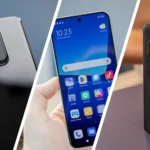In the realm of artificial intelligence and conversational agents, Meta AI, ChatGPT, and Google Gemini stand out as leading contenders, each offering unique capabilities and functionalities tailored to enhance user interactions. This comparative analysis explores their strengths, weaknesses, and overall performance in natural language processing (NLP) and AI-driven conversations.
Meta AI: Pioneering Natural Language Understanding
Meta AI, formerly known as Facebook AI, has made significant strides in natural language understanding and AI-driven interactions. Leveraging advanced NLP models and extensive training data from social media interactions, Meta AI excels in understanding nuanced language nuances, context, and sentiment analysis. Its integration across Meta’s platforms enhances user engagement and personalization, making it a formidable competitor in the chatbot landscape.
ChatGPT: OpenAI’s Powerhouse in Conversational AI
ChatGPT, developed by OpenAI, has garnered acclaim for its versatility and ability to generate coherent and contextually relevant responses across various topics. Powered by the GPT-4 architecture, ChatGPT leverages large-scale pre-training and fine-tuning techniques to simulate human-like conversations effectively. With capabilities spanning from answering queries to creative writing prompts, ChatGPT continues to evolve, offering customizable models for different user needs and applications.
Google Gemini: Google’s Approach to Conversational Assistants
Google Gemini represents Google’s foray into conversational AI, leveraging its expertise in search and machine learning algorithms. Designed to integrate seamlessly with Google’s ecosystem, Gemini prioritizes real-time information retrieval, personalized recommendations, and proactive assistance. Its ability to leverage vast datasets and Google’s Knowledge Graph enhances accuracy and relevance in responses, catering to user preferences and browsing habits.
Performance Metrics and User Experience

When evaluating these chatbots, several performance metrics come into play. Accuracy in understanding user queries, response coherence, speed of information retrieval, and adaptability to user preferences are crucial factors. Meta AI’s strength lies in its social media-driven insights and personalization, while ChatGPT excels in generative tasks and broad knowledge domains. Google Gemini’s integration with Google services provides a seamless user experience but may prioritize information relevancy over conversational depth in some contexts.
Future Trends and Innovations in Chatbot Technology
As AI technologies continue to advance, the future of chatbots holds promise for further innovations. Enhancements in contextual understanding, emotional intelligence, and multimodal interactions (combining text, voice, and visuals) will redefine how users interact with digital assistants. The integration of AI into everyday applications, from customer service to virtual assistants, underscores the transformative potential of conversational AI in shaping user experiences and improving operational efficiencies.
Choosing the Right Chatbot for Your Needs
In conclusion, selecting the best chatbot—whether Meta AI, ChatGPT, or Google Gemini—depends on specific use cases, preferences, and desired functionalities. Each platform offers unique strengths in natural language processing, AI capabilities, and user interaction paradigms. As AI continues to evolve, so too will the capabilities of these chatbots, driving innovation and setting new benchmarks for conversational AI excellence.
Understanding their distinct features and capabilities empowers users and businesses to harness the full potential of AI-driven chatbots, enhancing productivity, customer satisfaction, and overall user engagement in an increasingly digital and interconnected world.
















